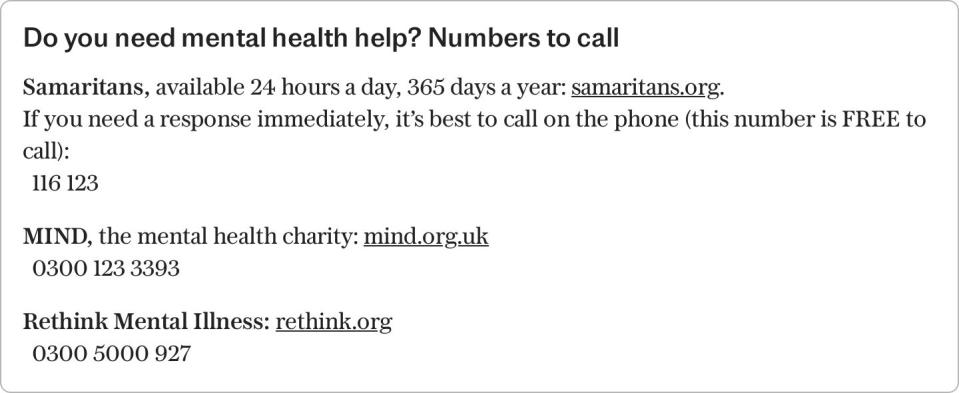Police urged to investigate thousands of mental health patient deaths

Campaigners have written to the chief constables of Norfolk and Suffolk calling for an investigation into thousands of mental health deaths.
The action follows a report by independent auditors which found as many as 8,440 patients had died unexpectedly over three years.
Coroners have raised concerns about safety issues in mental health services across the counties.
Norfolk and Suffolk NHS Foundation Trust said it had started a review of patient deaths, and had responded to all coroners’ reports raising concerns about the risk of future deaths, and was working to ensure all recommendations were implemented.
But the Campaign to Save Mental Health Services in Norfolk and Suffolk said the same mistakes were being made repeatedly, calling for police investigation, claiming there was a criminal case to answer.
The group said delays to treatment, lack of patient follow-ups, chaotic record keeping and disorganised communication between teams and been raised in several reports.
‘Criminal case to answer’
Mark Harrison, from the campaign, said: “There’s a criminal case to answer. And we want the police to investigate, where the same mistakes have been repeated time and time again.”
He told the BBC: “The mental health trust always responds saying they’ve learned lessons, they are changing policy and practices.
“But then what we’re seeing in analysing the orders from the coroner are repeat circumstances where other people have died in similar circumstances to a previous prevention-of-future-deaths notice.”
8,000 patients died unexpectedly
The campaign - which has previously called for a public inquiry into the matter - has also written to NHS England, the Department of Health and Social Care, the Care Quality Commission and local MPs.
In June this year, independent auditors Grant Thornton found that between 2019 and 2022, more than 8,000 patients had died unexpectedly.
In more than three in four cases, the cause of death had not been established.
The trust defines an “unexpected death” as the death of a patient “who has not been identified as critically ill or whose death is not expected by the clinical team”.
However, it insisted most cases were in the community and not related to poor care.
‘Sincere condolences’
The trust said: “We offer our sincere condolences to all families and carers of people affected” with pledges to do its best to ensure deaths were “minimised in future”.
It said it had begun a review of Prevention of Future Deaths reports - which are issued by coroners to highlight unsafe practices - “to ensure improvements in practice have been made and learning is embedded across clinical services”.
Mr Harrison said: “We’ve got lots of members of the campaign who are bereaved parents, or parents of children who can’t get services, so their biggest fear is that their children will end up in the same way as the bereaved parents,” he said.
“So it’s toxic. And we’ve been doing this for 10 years.”
In August it was claimed that the Grant Thornton report into the deaths had been “watered down to spare bosses” with a section relating to a “culture of fear” removed entirely.
The trust and auditors said the changes were made as a result of fact-checking.
The review was commissioned last year after the Care Quality Commission warned the trust must improve, after identifying 100 unexpected deaths over two years.
The student who died after repeated NHS failings
Student Theo Brennan-Hulme, 21, suffered from bouts of severe anxiety.
In early 2019, in the midst of a crisis, he had sought help from his GP, his mother, Esther Brennan, told BBC News.
Mr Brennan-Hulme was referred to the community mental-health service in Norfolk as an emergency but waited eight hours before being assessed at Hellesdon Hospital, Norwich.
His family was not contacted after the assessment, despite this being part of the treatment plan in place, or referred to the mental-health home-treatment team to enable treatment options to be explored.
Although the student did not attend a wellbeing service appointment on 6 March 2019, the absence was not followed up.
Six days later he was found in his university bedroom having killed himself.
Miss Brennan said it had taken several years of pursuing the trust to discover that the kind of mistakes made in Theo’s care had happened in other cases.
“The lack of training, lack of staffing, the lack of following policy, the lack of care was known about,” she said.
“I know there were previous PFDs [Prevention of Future Deaths reports] before Theo, that suggested things needed to improve urgently.
“They couldn’t have got any worse for Theo and that’s abhorrent to the memory of all the people who went before him.”
“He died horrifically, alone, with nobody, and everything that they didn’t do exacerbated his state.”


 Yahoo News
Yahoo News 
